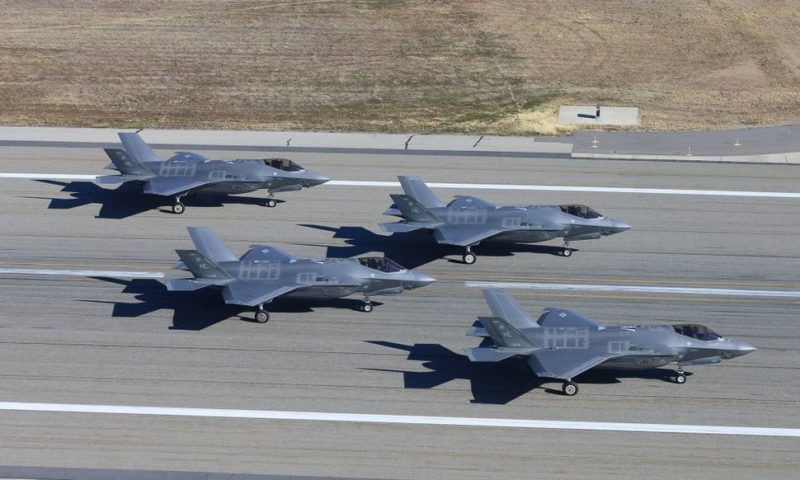The surprising decision represents a troubling low-point in relations between the two critical NATO allies.
THE U.S. HAS PAUSED ALL deliveries to Turkey of equipment related to the F-35 Joint Strike Fighter as retribution for its continued plans to invest in a sophisticated Russian missile system.
The news represents a dramatic downturn in already deteriorating relations between the U.S. and Turkey following months of policies under President Recep Tayyip Erdogan that have brought the NATO ally into closer cooperation with Russia.
Sources told Reuters, among the first outlets to report the news, that American officials had relayed to their Turkish counterparts in recent days that they would cease the F-35 equipment shipments if Ankara proceeded with a long-discussed deal to purchase Russian S-400 surface-to-air missiles. Erdogan has previously pledged that Turkey would begin receiving the missile system in July.
“The United States has been clear that Turkey’s acquisition of the S-400 is unacceptable. Therefore, the DoD has initiated steps necessary to ensure prudent program planning and resiliency of the F-35 supply chain. Secondary sources of supply for Turkish-produced parts are now in development,” Pentagon spokesman Charles Summers said in a statement. “We very much regret the current situation facing our F-35 partnership with Turkey, and the DoD is taking prudent steps to protect the shared investments made in our critical technology. Our important dialogue on this matter will continue, however, until they forgo delivery of the S-400, the United States has suspended deliveries and activities associated with the stand-up of Turkey’s F-35 operational capability. Should Turkey procure the S-400, their continued participation in the F-35 program is at risk.”
American officials, including Defense Secretary Patrick Shanahan and prominent members of Congress, have expressed concern that one country operating both of those weapons platforms would give Moscow insight into the sensitive inner workings of the highly technical F-35. The U.S. and many of its allies and partners plan for the controversial, uniquely expensive fighter jet to become a central feature of their air forces.
“Though Turkey is an important U.S. ally, their close relationship with Putin and persistent efforts to acquire the Russian S-400 air defense system could seriously compromise our national security,” Sen. Jeanne Shaheen said in a statement. The New Hampshire Democrat has introduced a bill with bipartisan support that would solidify the delay of transferring F-35s – not just equipment related to them – to Turkey until it fully abandons its plans to proceed with the Russian missile sale.
Turkey currently has two-F35s on which its pilots and crews are training at Luke Air Force Base in Arizona. The U.S. had previously scheduled to deliver to Turkey two more by November of this year. Under the previously arranged deal, the jets were to be delivered to Turkey within one or two years.
Following increased cooperation with Russia for regional policies such as the war in Syria, Erdogan, who continues to face criticism for perceived authoritarian crackdowns at home, pledged to purchase the S-400s. In recent weeks, he has doubled down on his intentions and stated Turkey may even invest in other, more sophisticated Russian equipment.
“The S-400 is a done deal, there can be no turning back. We have reached an agreement with the Russians,” Erdogan told Turkey’s Kanal 24 television station last month. “We will move toward a joint production. Perhaps after the S-400, we will go for the S-500.”
In regional elections over the weekend, Erdogan’s party lost control of the capital, Ankara, in a surprise outcome, leading some to speculate that his recent consolidations of power are beginning to backfire.

